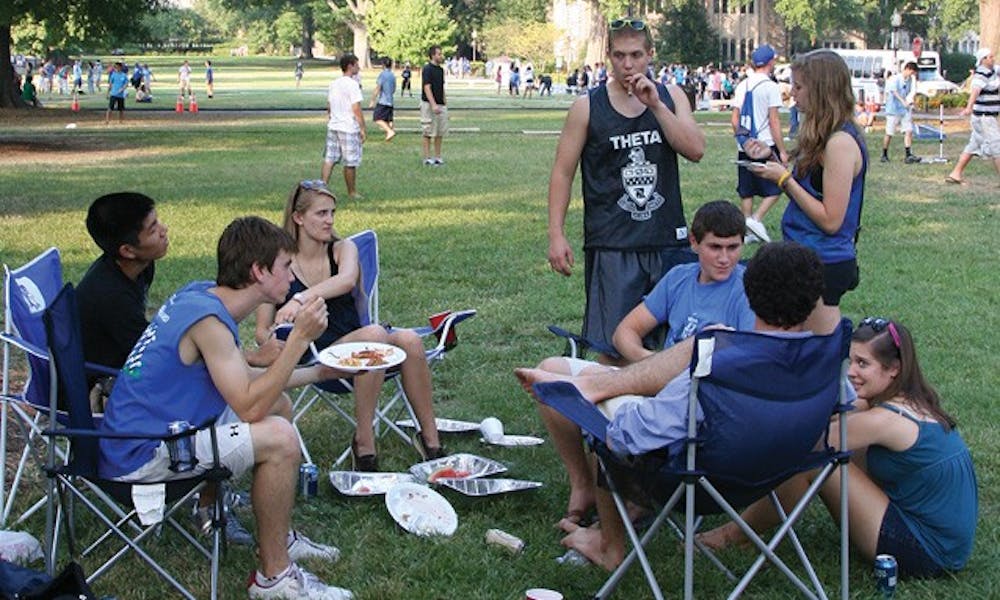Like Duke football’s final attempt at a game winner Saturday, some said Football Gameday just came up short.
Football Gameday, the University’s replacement for Tailgate—canceled last November—attempted to substitute beer showers and neon costumes with barbecues and seersucker in a campus-wide, organized celebration of Duke’s game against Richmond.
Prior to the football game, 18 registered student groups hosted barbecues throughout various areas of West Campus. Roughly nine of the groups’ events hosted about 75 people, though the rest of the groups’ events were very small, Dean of Students Sue Wasiolek said.
The lack of Tailgate’s signature sense of community was the main complaint coming from students, said junior Chris Brown, Duke Student Government external chief of staff.
“When you spread everyone out and decentralize everything, it’s very difficult to foster community,” Brown said. “The model we had in place on Saturday is not the one we are happy with because community was lacking.”
DSG President Pete Schork, a senior, said he saw a range of student opinion regarding attending the football game, from increased enthusiasm to rebellion—students who did not attend the game simply because of their dislike of Football Gameday.
“It was an outstanding first effort,” Vice President for Student Affairs Larry Moneta said.
Administrators were also pleased with attendance at Saturday’s football game, though they acknowledged that attendance is usually heightened for the first game of the season.
Student leaders will be meeting with the administration this week to discuss potential changes and improvements for the next Football Gameday this Saturday when Duke football plays Stanford.
Schork said he and Brown will be pushing to feature more barbecues on Main West Quadrangle, as well as exploring venues to allow unaffiliated students to host barbecues or events. The main goal going forward will be to open Football Gameday to anyone who wants to have a pregame gathering as opposed to the more structured group gatherings that took place Saturday.
“[Football Gameday] went well to the extent that it showed a strong message to the administration that students are willing to embrace a festive, pre-football game celebration,” Schork said. “Now it is a matter of adopting that in a way that is more communal in nature.”
A more communal event may also increase student participation in Football Gameday, Schork added.
“At the old event, you used to see over a thousand come,” he said. “Collectively, I would put the number [of students at the first Football Gameday] to be below 1,000.”
Wasiolek said she was not aware of any major rule violations or calls to Duke Emergency Medical Services during Football Gameday. She added that some groups attempted to continue their barbecues beyond 6 p.m.—the deadline for the conclusion of groups’ respective events—and had to be told to stop their event, clean up and go to the game.
Although Football Gameday received criticism for lacking community, Brown said he thought it served its main purpose—providing an event that centered around football.
“When the smell on Main Quad is of charcoal and barbecue, the atmosphere speaks for itself in regards to what Duke Football Gameday is centered around,” Brown said. “It was centered around football, conversations and food.
Interfraternity Council President Zach Prager, a senior, declined to comment. Other IFC executive members also declined to comment.
Get The Chronicle straight to your inbox
Signup for our weekly newsletter. Cancel at any time.

